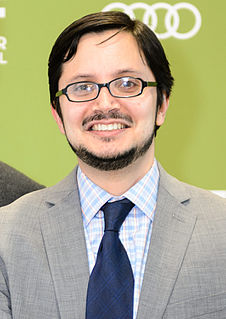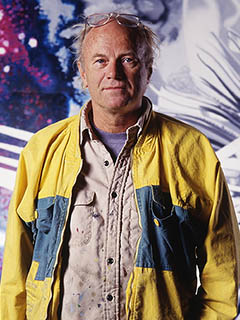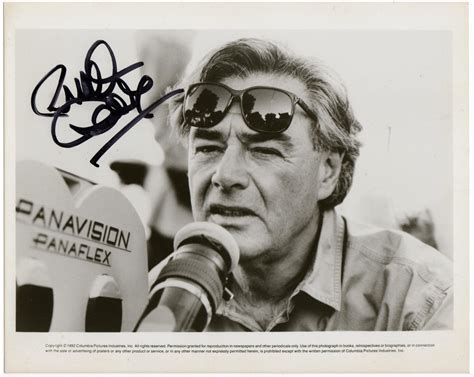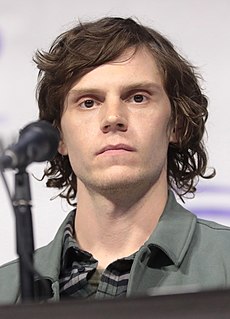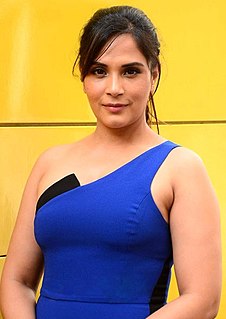A Quote by Dave Itzkoff
One of the first times I wrote about Robin Williams for 'The New York Times,' I interviewed him for a feature about 'World's Greatest Dad,' a dark comedy he starred in for his friend, the writer-director Bobcat Goldthwait.
Related Quotes
I first started making films - this is my first feature, but I was making shorts - I was actually freelancing as a day job at The New York Times as an art director. I actually worked with Bill Cunningham and really soon after I met him, I thought, "Oh my God, he's a perfect subject for a documentary."
For ten years, I wrote regular columns about science for women's magazines, and to my knowledge I'm the only person in the world who can say that. This has no kudos in either the science-writing world or the academic world, but it's one of the most challenging things I've ever done. It's much harder to write about cosmology for a magazine like Vogue than for the New York Times, which I've also written for, because you have to imagine that on the page opposite there'll be an advertisement for eyeliner, or an article about the latest trends in skirt length.
The New York Times will tell you what is going on in Afghanistan or the Horn of Africa. But it is no exaggeration that The New York Times has more people in India than they have in Brooklyn. Brooklyn is a borough of two million people. They're not a Bloomingdale's people, not trendy, sophisticated, the quiche and Volvo set. The New York Times does not serve those people.
There is an amazing feminist writer called Lindy West; she wrote a very nice piece for The New York Times. She wrote about Woody Allen, saying if we can't go after your work or your career, we will go after your legacy. You will never be remembered the same way. I think a lot of women will have to take solace in that.
I have three boys. And I wanted to make sure it connected with them and then those guys who grew up like me, in environments like me.And then I knew something about science that your New York Times reader would be interested in. So I was thinking about it in multiple ways: I'll connect with the people who grew up like me first, and then the New York Times reader will be interested in the science because it's so good and they want to be "in the know."
Recently it's become much to my surprise, something that does happen. For example, I used to get almost all of my stories, and it's probably still true, from newspapers. Primarily from The New York Times. No one ever really thinks of The New York Times as a tabloid newspaper and it isn't a tabloid newspaper. But there is a tabloid newspaper within The New York Times very, very often.
